[Monday, August 1]
Today I read Lacan’s “The Signification of the Phallus.”
[Tuesday, August 2]
I’m feeling cruel and sharp again, my joviality like a knife, carving out quickness, possibility of change. Why does this coincide with some aggressive sense of academic possibility? The stretchiness of the cut of this top over the chest isn’t performative of sexiness but rather an aggressive baring of the phallic breasts, its lack of shame and bathetic realism iconic in its feminism. Being in analysis means I come up with ideas about recent clothing purchases on the spot: I’m talking about a piece by Baserange.
I woke up with a feeling that something significant had happened in my dreams. Then it came back to me: John had returned and we were in some unfamiliar place that now seems to resemble the room in the basement of Lara’s house. He was smiling and happy and I don’t recall exactly how it happened but at some point he pulled himself towards me and kissed me. I felt the tip of his tongue as the hard but rounded muscle that it is. Later he took his penis out. I was touching it a bit awkwardly because I didn’t feel ready to use my mouth and somehow the skin wouldn’t move at all. I noticed that there were some droplets of urine and a dark spot near the tip which was visibly encapsulated by a transparent bag of foreskin which had the texture of a jellyfish. I was afraid he had some sort of an infection, that he was hurt or sick, so I paused and then he hid it from me and we started going somewhere else. At some point I recall moving my hands over the circumference of his arms and other limbs and telling him how lovely it was that he was so old and bumpy and indeed the limbs started to resemble the branches of an old tree.
[Friday, August 5]
Restless leg syndrome again!
Bought magnesium citrate tablets.
Finally learned to free associate in analysis.
Received three packages in the morning: dress, mac mini, phone case.
Received M1 Mac Mini—spent several hours resolving issues with authentication for Git LFS, fixing node.js and netlify cli installation by adding some directories to $PATH, changing something about my hugo theme’s config, and spent a little time spent setting up the fish shell. What a luxuriant form of very private housekeeping.
The bleach painted dress is like a chalkboard drawing. I like how the bottom of the butterfly looks like a stomach or a rectum. The entire form of the animal is organ-like. I like thinking about this motif, the folding up of the curves. I like how the fabric itself rides up a bit and creates horizontal wrinkles. When I look at the forms close up I see many penises.
It was nice to talk about negation today, about how I keep on negating things in my detransition writing because I am slipping about in search of the thing I want to speak about. Not just in order to focus (haha) but in order to move in the direction of my desire.
Late summer thunderstorms feel exhausted, are exhausting to listen to.
[Sunday, August 7]
I am accumulating a backlog of dreams which do not feel easy to understand.
August 3 - Playing 5 or 6 beats per second on a single note on the cello, synchronized with the design of a dress, which was supposed to have some special function. It was a white cotton slip dress with multicolored speckles? I found the alternation of down and up-bows in the quintuplets jarring, and was relieved when I switched over to six.
August 4 - Zane updated his twitter bio with a heavily consonant, maybe palindromic string of nonsense words, and also changed his pronouns to he/they. There was something about keeping fruit bats as pets, a Chinese woman psychoanalyst telling me about a superstition or proverb in response to a part of my dream; sense of disapproval at the “Jungian” analysis paired with fascination with the proverb itself. “Not my personal association!” She was walking very fast in her heels, wearing some kind of velour pants with an intense earthy/orange/yellow abstract gradient. I was playing the cello again.
August 6 - Went to see a 30-minute short film with mom; she vanished afterwards, I saw another film, and then wandered around in search of her. She told me via phone call that she had already gone home. I walked through some crepuscular courtyard that was reminiscent of some parts of the Stanford campus, and then passed through a museum gift shop on the way out, which led into a gallery which was exhibiting video games.
August 7 - Went to a place that seemed familiar to hike and run, the implication being that I couldn’t sleep so I was going to exercise. People were supposed to swim past a long coastline in order to get to the other side of the trail. I had goggles, I believed I was in a triathlon. I had been visiting Eri in Chicago, but when I returned Lara was my host. The apartment didn’t look familiar; there was a party going on with plenty of people kissing.
I lack dignity recently. It has something to do with the fact that my libido isn’t attached to any particular memory or experience; like my dreams and the way I speak in analysis it seems free-floating. And on the other hand I am trying so hard to read and write and whatever coherence I find feels both too rare and too local; how am I going to create? I took a nap at 11 AM today and when I came it felt so good but so quick; I told myself that I wanted to be someone’s dog and cat at the same time. I told myself it would be so simple and so nice to be deluded about something, like the notion that I am just hungry for a real cock. And instead I ride out the wave of Joan Copjec, of psychoanalysis.
Oh, this is super beautiful, and relevant to the notion of a phallus which is infinite:
The difference between bad infinity and the infinity that falls within the finite is basically a difference between a failure to reach a limit and a limit reached. Bad infinity is the monotonous infinity of the finite, which goes on and on without ever arriving anywhere; it is a matter of endless deferral, of putting off every arrival. Lacan invokes this notion in the Ethics seminar, for example, when he accuses capitalism of urging us to “Keep on working; as to desire, come back later.” Obviously, this “later” will never arrive and we will never be properly rewarded for our work. The profit that accrues to the capitalist is always in excess of what he pays for the worker’s labor potential. Desire is often thought to be underwritten by a bad infinity; one is never satisfied, whenever the object of desire is attained, we no longer want it but look for something else.
The other, actual infinity to which I refer is not the infinity of the finite, its unceasing aspect, but an infinity within the finite. Here we have not the pessimism associated with failing to attain some end, but a sort of “incentive bonus” attained only in existence that is conceived as finite. Freud spoke of an “incentive bonus” in his work on jokes. But we should also see this logic at work in the theory of drive, which does not arrive at an object but does attain satisfaction. This satisfaction results not from arriving at some preset goal (the drive is, as Freud says, Zielgehemmt, aim-inhibited), but from circling the difference that separates the subject from herself. This separation of the subject from herself, her “out-of-jointness,” (as Shakespeare was the first to describe it in Hamlet) is a function of time. The drive is a concept belonging to the order of finitude, of a temporal order, because it can only be thought once the world is no longer conceived, as it was classically, as ordered by an eternal, final cause. With modernity we ceased believing that there is a final cause, a principle of harmony, at work in the world. The Freudian concept of drive as precisely not instinct is an attempt to found a theory of human action in a temporal order, one from which a final cause is absent.
[Monday, August 8]
I liked today’s dream. I visited Lucia, TJHSST ‘12, whose current name I can’t remember, in LA. We shared a cabin and went to an event where Reformation models sat in a circle and told stories of some kind. Kind of like in the Lorde video “Mood Ring.” They go by “Yaya” now, @nya.yayaya, but their professional name is “Light.” Perhaps I was thinking of them because I’m becoming conciliatory with respect to transmasculine people and read a vituperative reddit post against transmascs who are completely feminine in their day-to-day lives. It helps me to think of transmasculinity as a form of femininity, sigh.
Happy! I want to draw a picture of a dog whose face is an abstract painting. I would like not to be an abstraction, says the dog. The owner pats the dog on the head: Good. Since the dog has no tongue, he can’t pant, can’t smile, can’t show signs of gratification. But the owner can. Then Lara comes and we look at the dog, like when we looked at the photos I took of the Louise Bourgeois paintings, and we try to figure out what we can make out in the dog’s face—figures like clouds, ferns, stones, mountains. We speculate about whether or not the dog can hear or understand the contents of our words. Then I look up “abstract dog hearing” and learn that they can hear, by picking up on the vibrations through the surface of the paint. Makes sense.
In a 1986 conversation with Gerhard Richter, Benjamin Buchloh suggested that there is something contradictory about the fact that Richter produces figurative as well as abstract paintings. The artist responded: “I don’t really know what you mean by the contradiction between figurative and abstract painting.” This is an astonishing claim, particularly given the fact that Richter bases his figurative paintings on photographs. What is abstraction, if not one long assault on figuration? And what is photography, if not the primary medium through which figuration has fought back?[...]As should be evident by now, it is through an implicitly photographic analogy that the artist brings together abstract painting and photographic figuration. He begins his photo pictures by painting a figurative analogue of a photograph. He then uses a blurring device to produce an abstract analogue of this figurative analogue. The analogy between the figurative painting and the abstract painting operates within the frame of the photo picture, but the analogy between the figurative painting and the photograph “behaves” like the analogy between a photograph and its referent: it links the photo picture to something external. The resulting canvases consequently do even more than analogize abstract painting and photographic figuration; they also analogize photography’s own way of analogizing. It is for this reason, I believe, that Richter claims to paint like a camera.[...]Richter also came back to analogy through a new kind of abstract painting—one built up from multiple layers of paint and “random [and] illogical colors and forms.” Whereas many of the gray paintings evolved out of photo pictures, these new works did not; they are abstract through and through. But although they do not make any concessions to figuration, one cannot stand for very long in front of them without beginning to see things; like cumulus clouds in a blue sky, they invite us to search within them for phenomenal forms. Richter manifests no embarrassment whatever when questioned about this dimension of his color abstractions. On the contrary, he tells Robert Storr that he, too, apprehends “lake[s],” “red rain,” and “broken cliffs” when he looks at them. He also maintains that this kind of recognition is at the heart of all aesthetic experience—even the most seemingly non-referential. “We only find paintings interesting because we always search for something that looks familiar to us,” he says in the same interview. “I see something and in my head I compare it and try to find what it relates to. And usually we do find those similarities, and name them: table, blanket, and so on” (304).
Kaja Silverman, “Photography by Other Means,” Flesh of my Flesh
Laurent and Laurent were walking across the bridge to campus while I was walking on the opposite side of the road returning from campus. I am (not) sure they spotted me, but I didn’t make eye contact and pretended not to see them. I was wearing a dress, and felt my face get hot. In any case, there is some context for it now, when I have to come out.
The Changing Light at Sandover.
How do ouija boards work? What exactly is séance?
What is monomania? erotomania? hysteria?
[Tuesday, August 9]
John is back. We stared at a snake for over an hour.
[Wednesday, August 10]
Revisited Potter’s Falls, only this time with family.
Pointed out where I had lost my glasses.
I’m enjoying this visit, the domesticity of it.


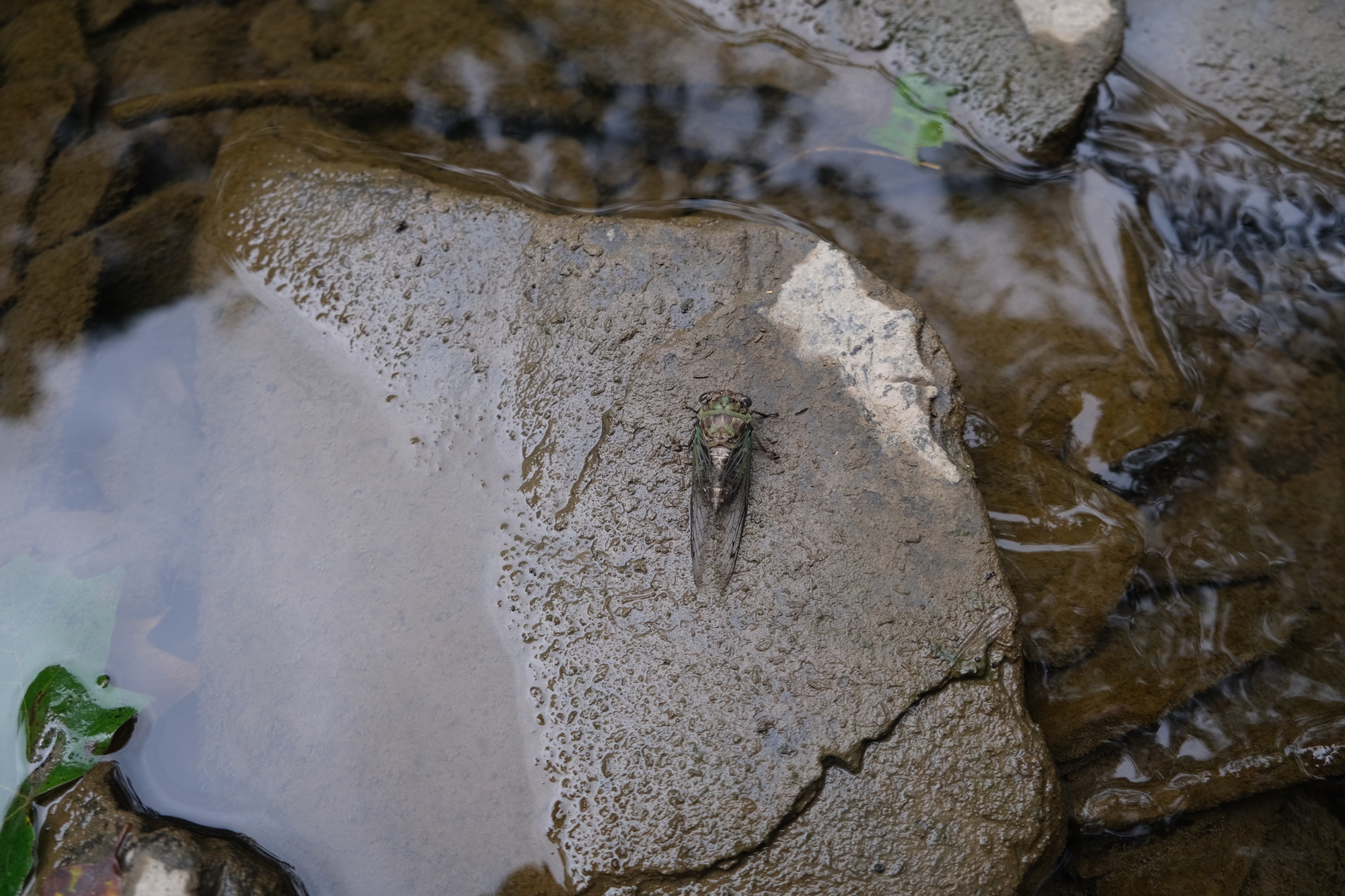
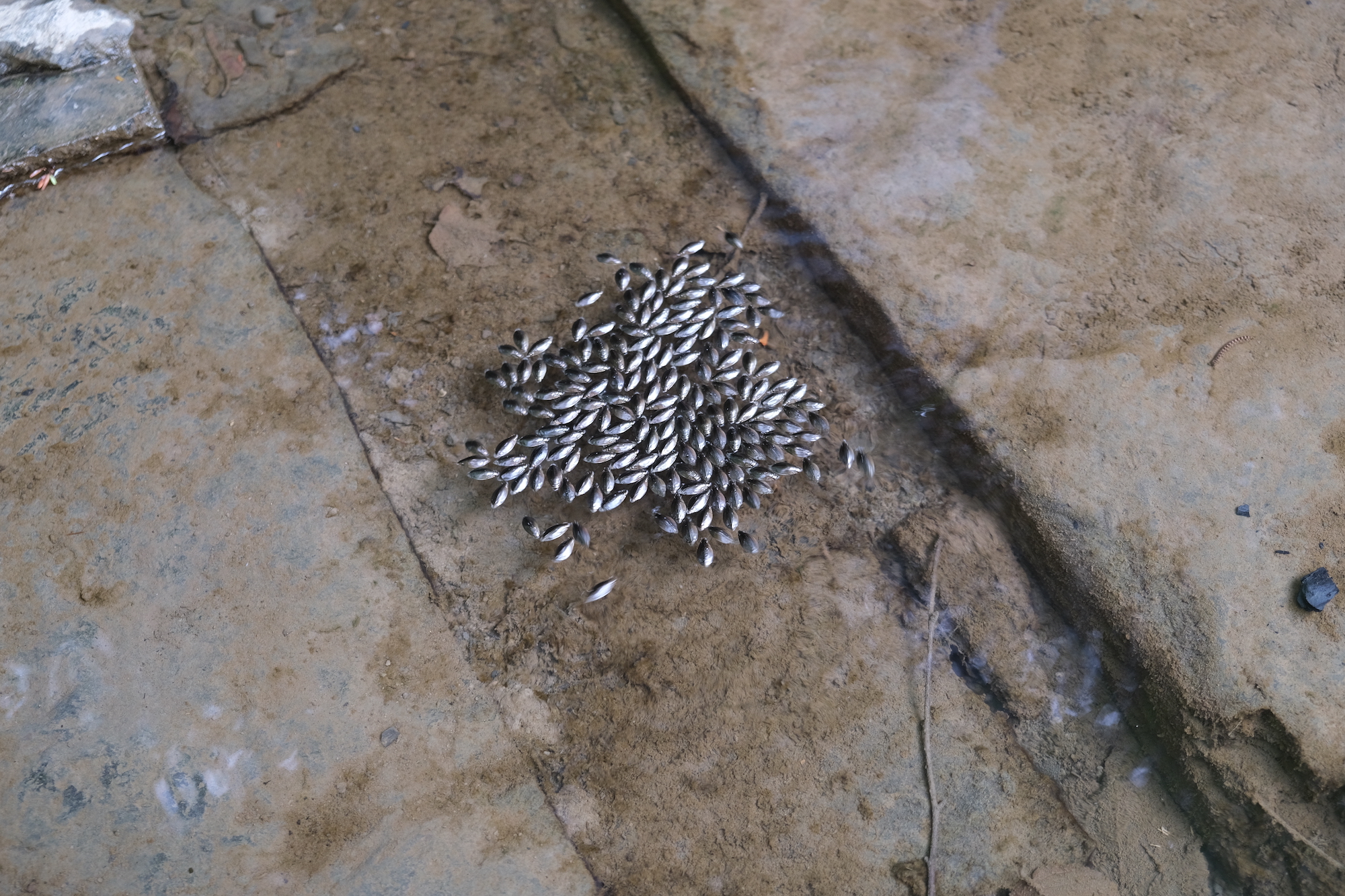









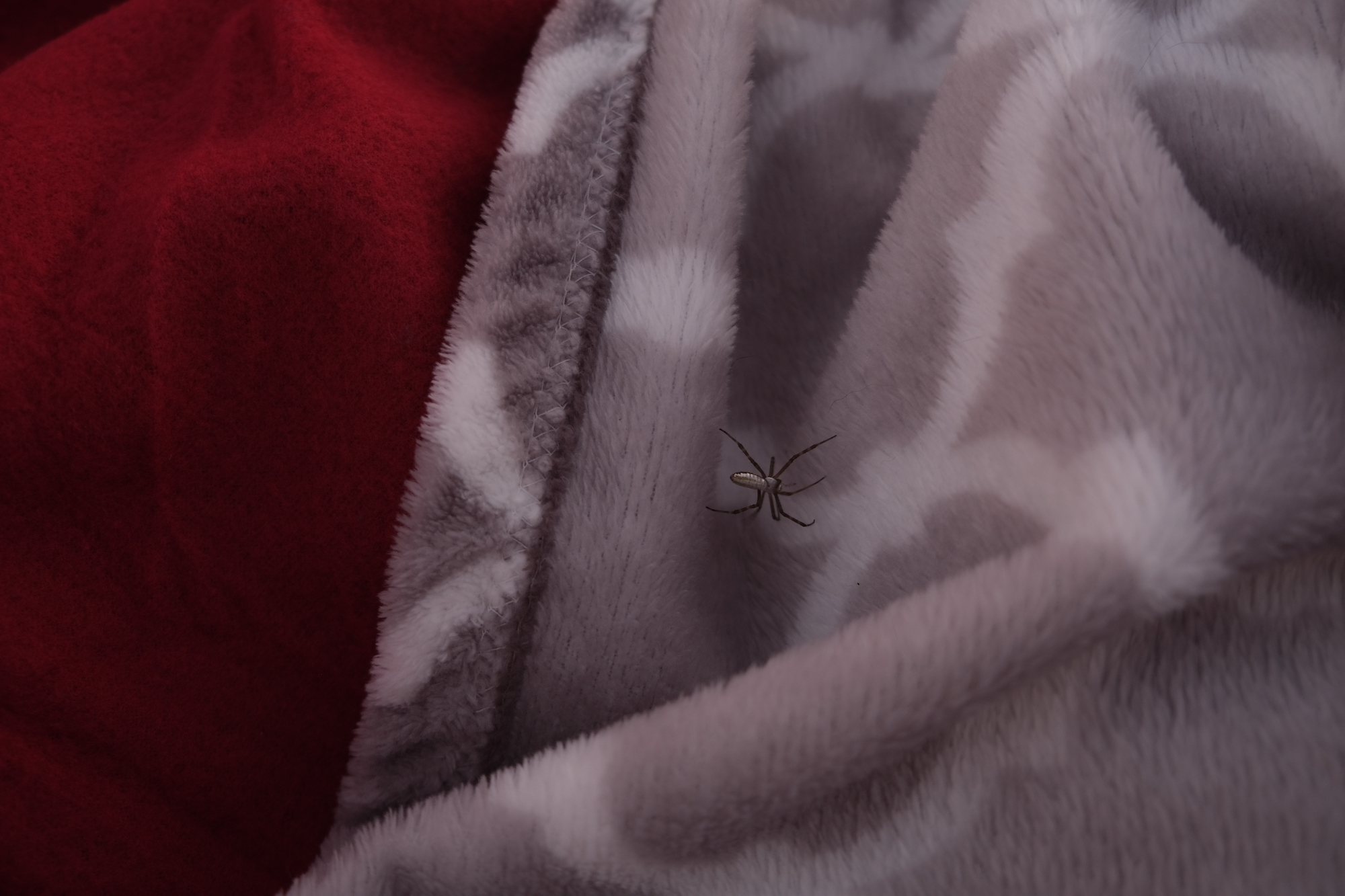








[Thursday, August 11]
Was abroad in the summer, in South America, and was late to or skipping class on purpose. A cluster of tiny monarch butterflies, like freshly hatched spiders, emerged from under my computer monitor. I looked closely and saw lots of red beetles trying to eat them. Wanted to record what was happening but couldn’t move fast enough.


[Friday, August 12]
What do I do now?
I was at a board meeting in which a company was trying to start a new swimwear brand. The CEO and I had a brief exchange on whether it was better to use the word “bodysuit” or “body” in the brand name—I said the latter was better, but he preferred the former. Later, I suggested they compete with sportier companies like “oakley,” “athleta,” and “lululemon,” but the girl next to me suggested “billabong,” which I said was exactly what I meant. Then I mentioned “andie swim” as an example of a good brand name. The girl and I walked home afterwards through an open expanse of land, like the back end of the Cornell campus. She looked exactly like the young actress from You, Jenna Ortega. I was excited to get to know her. She told me she studied an engineering field, and we briefly visited a warehouse where they built rockets or airplanes, and then she told me she had had sex with over 100 people. I saw the covid exposure tracking log on my phone, but it seemed to log very specific lines on people’s personal activities.
I’m still listening to the same music I listened to in the fall of last year, and there’s no sign that I’ll get tired of it any time soon, but the difference is that I just added to the playlist music I had forcibly removed after having found it too painful to listen to in the winter, and then actually forgotten about, until an ad for a show popped up on some feed. Listening to “Acrobat” while my mom enters the room and comments on the “nice music” pricks a nice hole in some nice loop. When I’m with her, I like to joke that I’m always right.
I’d like to be able to play the Arpeggione sonata, Britten cello suites, Bach cello suites.
Who cares, I’m not a moralist
I’m just a lady with some time
I want to be made out of love
I want to be made into life
[Saturday, August 13]
Still obsessed with sound. My mom lead me somewhere—to my cello—first through an overpacked concert hall in which many people were picnicking around and on the red velvet seats; she took me to a door that led to a hidden warehouse, with large industrial refrigerators—then a hidden greenhouse, then another hidden garden—where my cello (ostensibly) lay. This dream seemed rather random at first but grew on me—has my mom ever led me somewhere desirable? Isn’t it nice that she did, this morning, just then?
Looked at my shadow, and the stars, and encountered a skunk, and a dead woodchuck I recognized, and listened to Angel Olsen, and spent cozy time on Cayuga Heights Road going to Target to buy a new Brita filter after the old Pur filter developed a leaking crack.
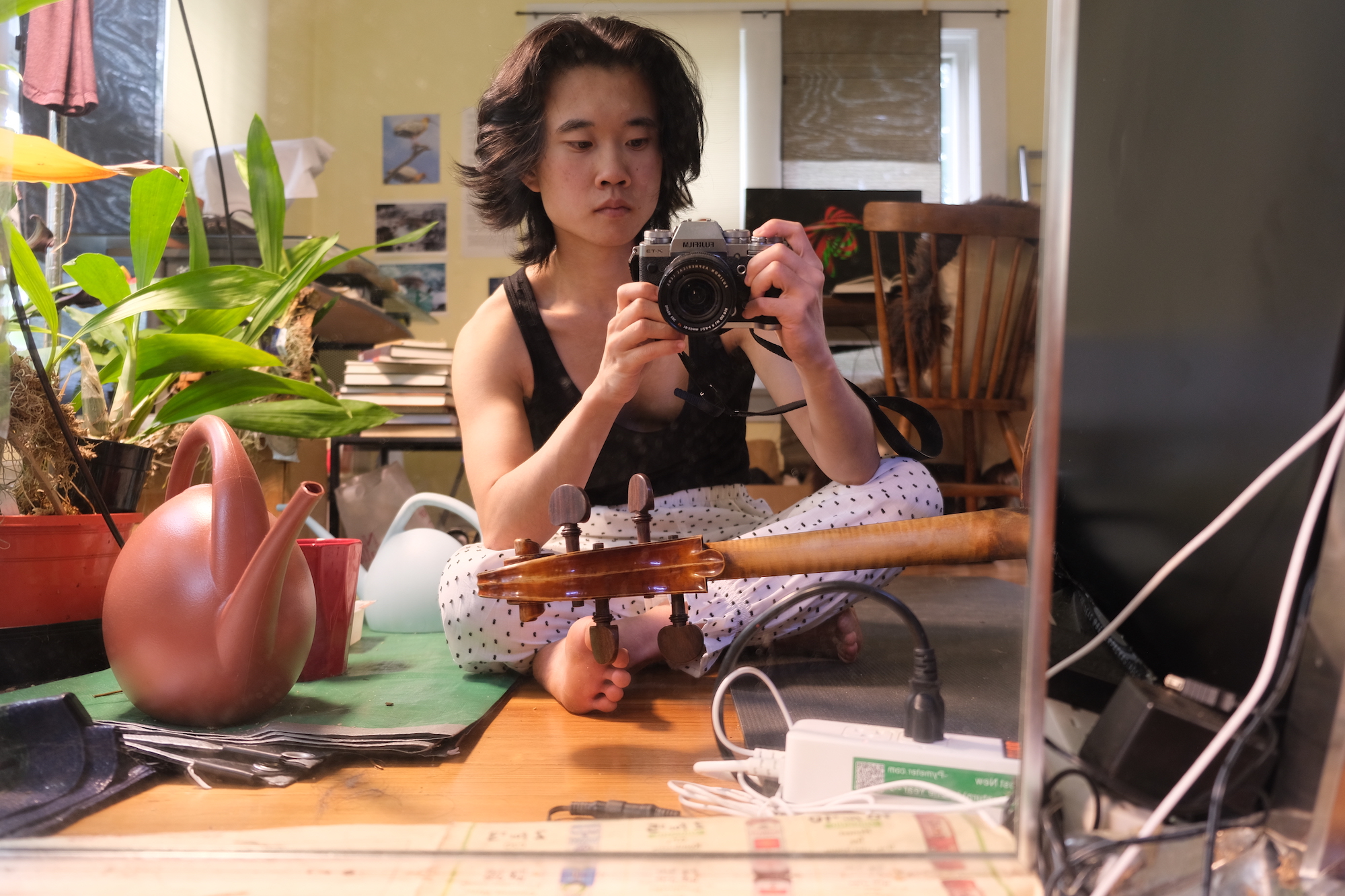
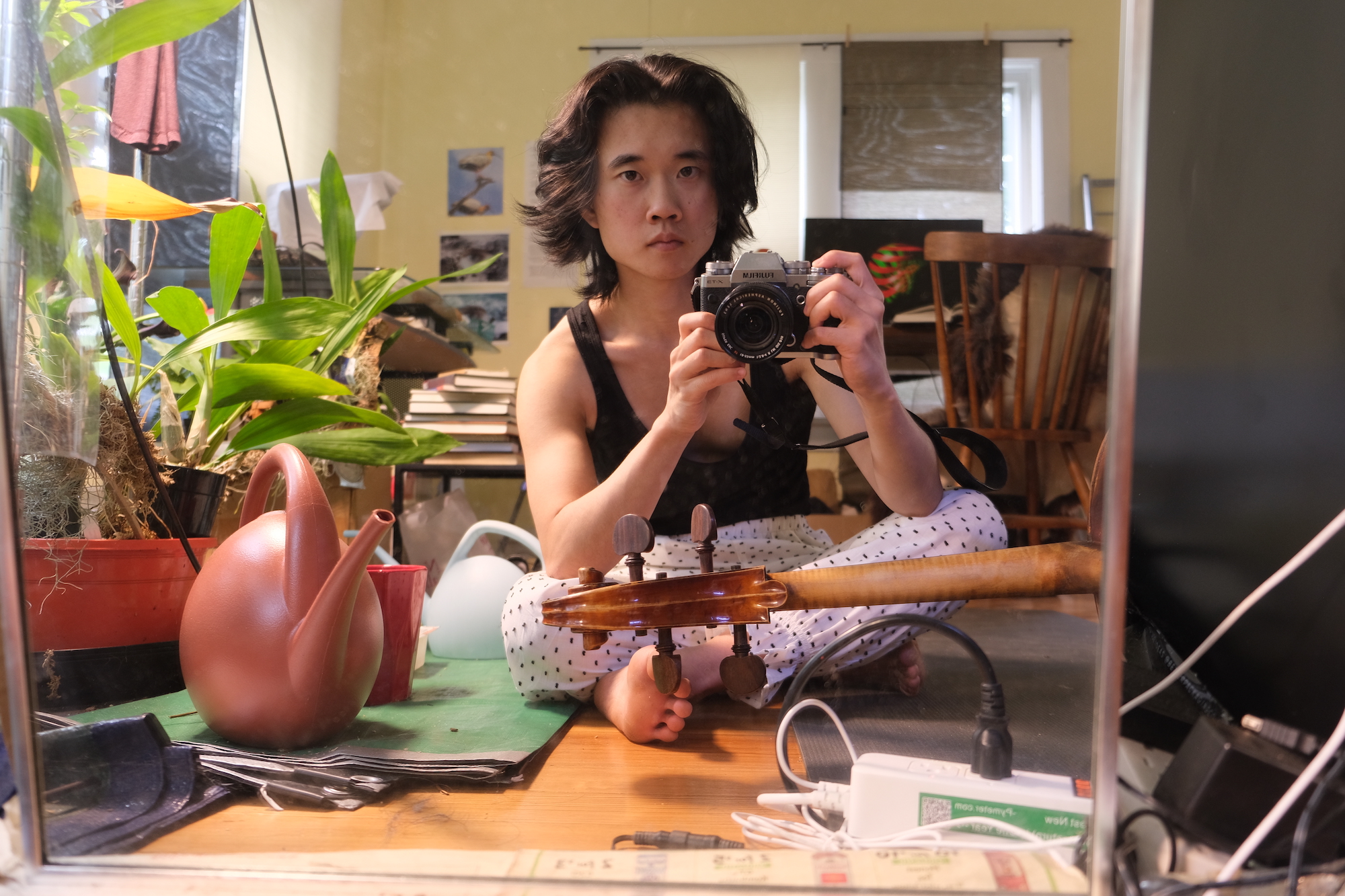
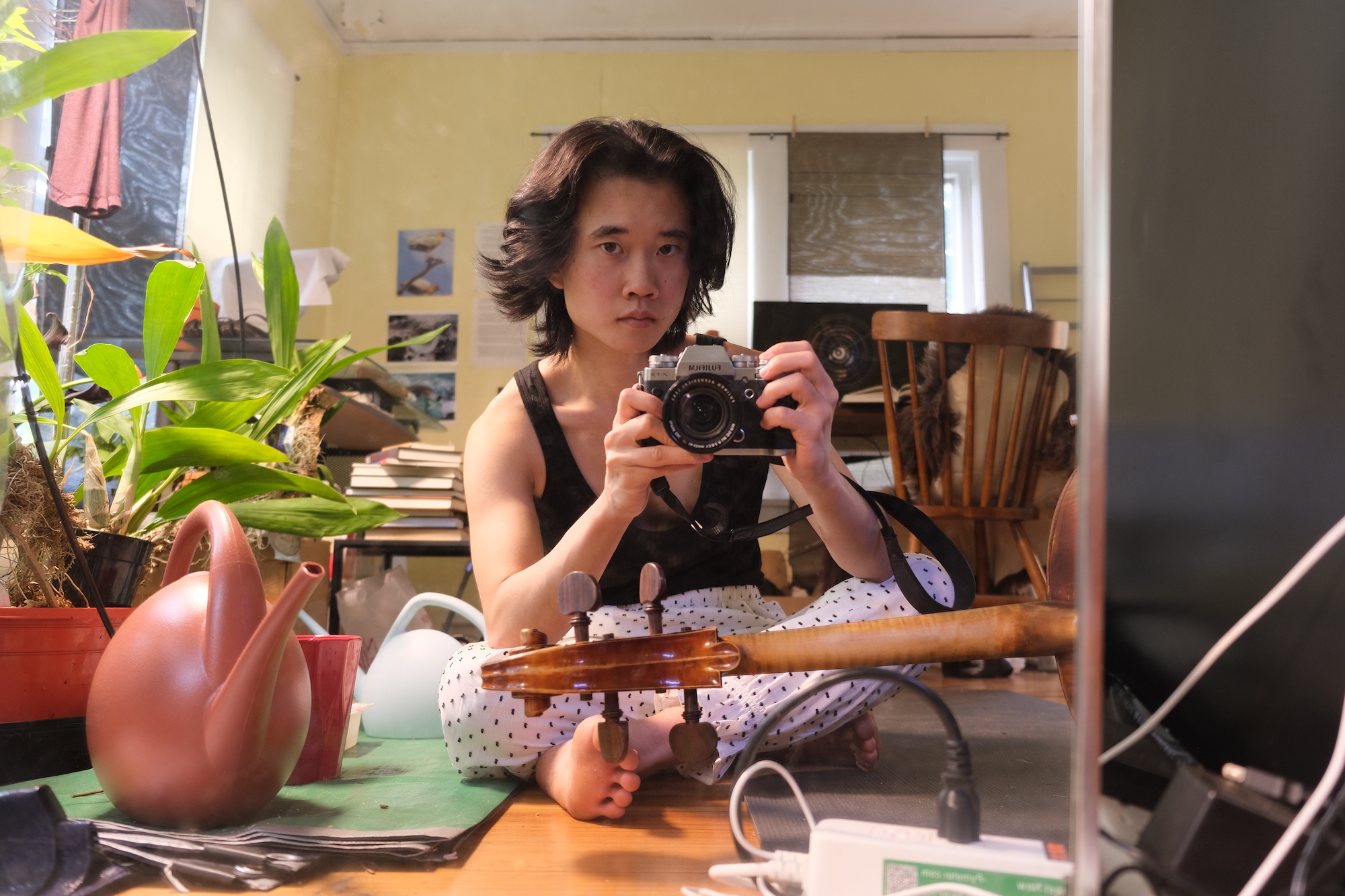
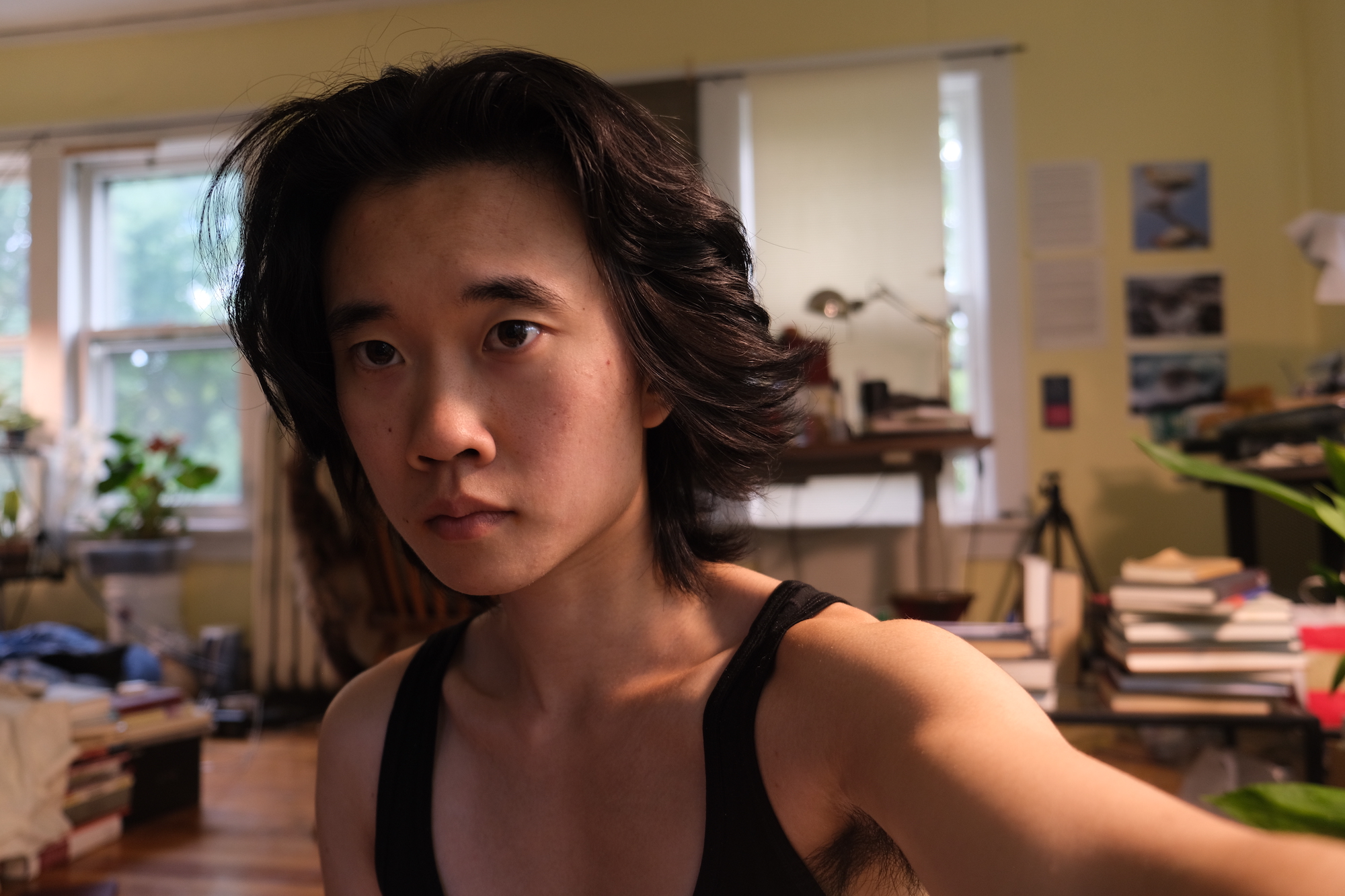
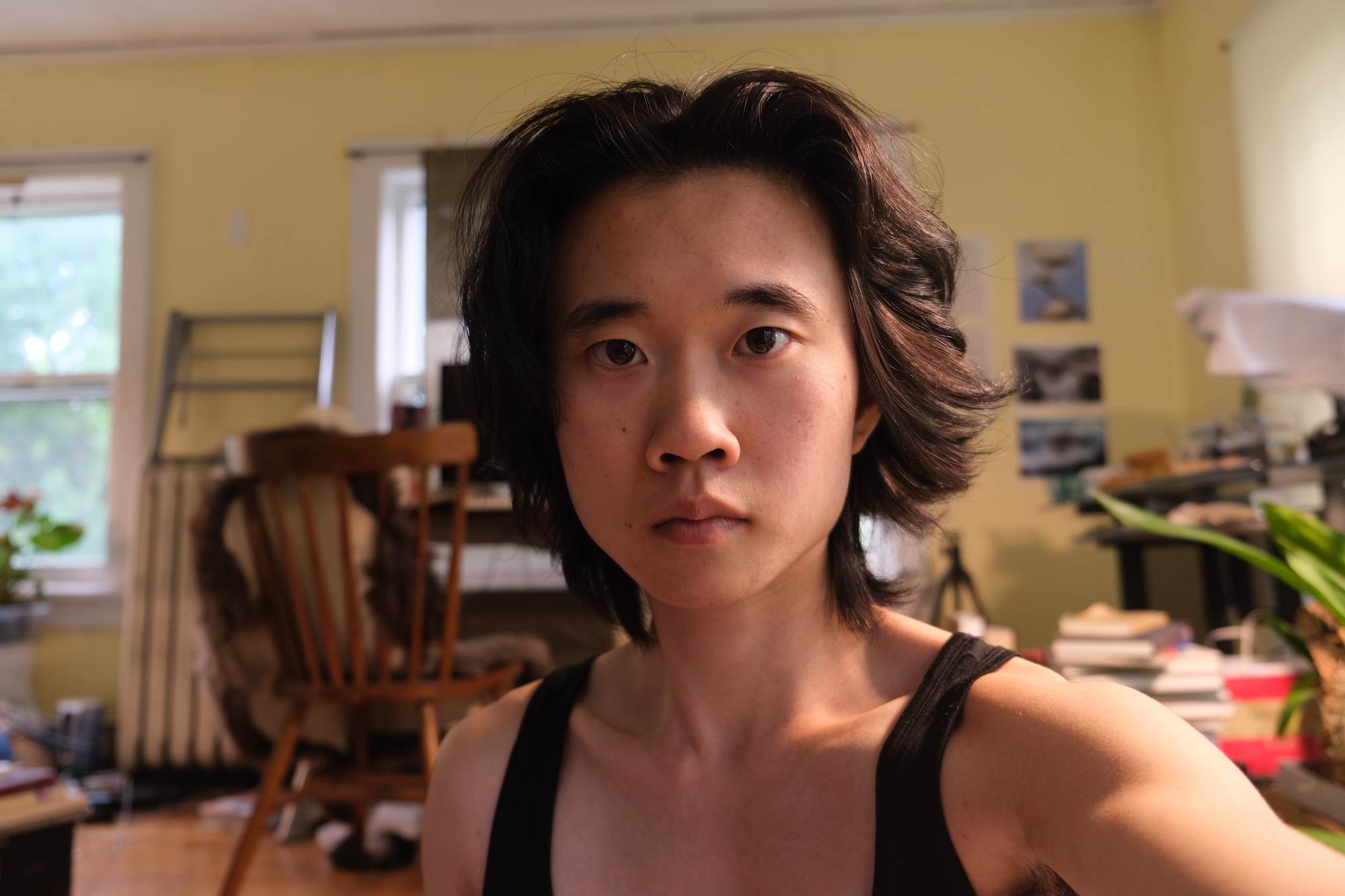
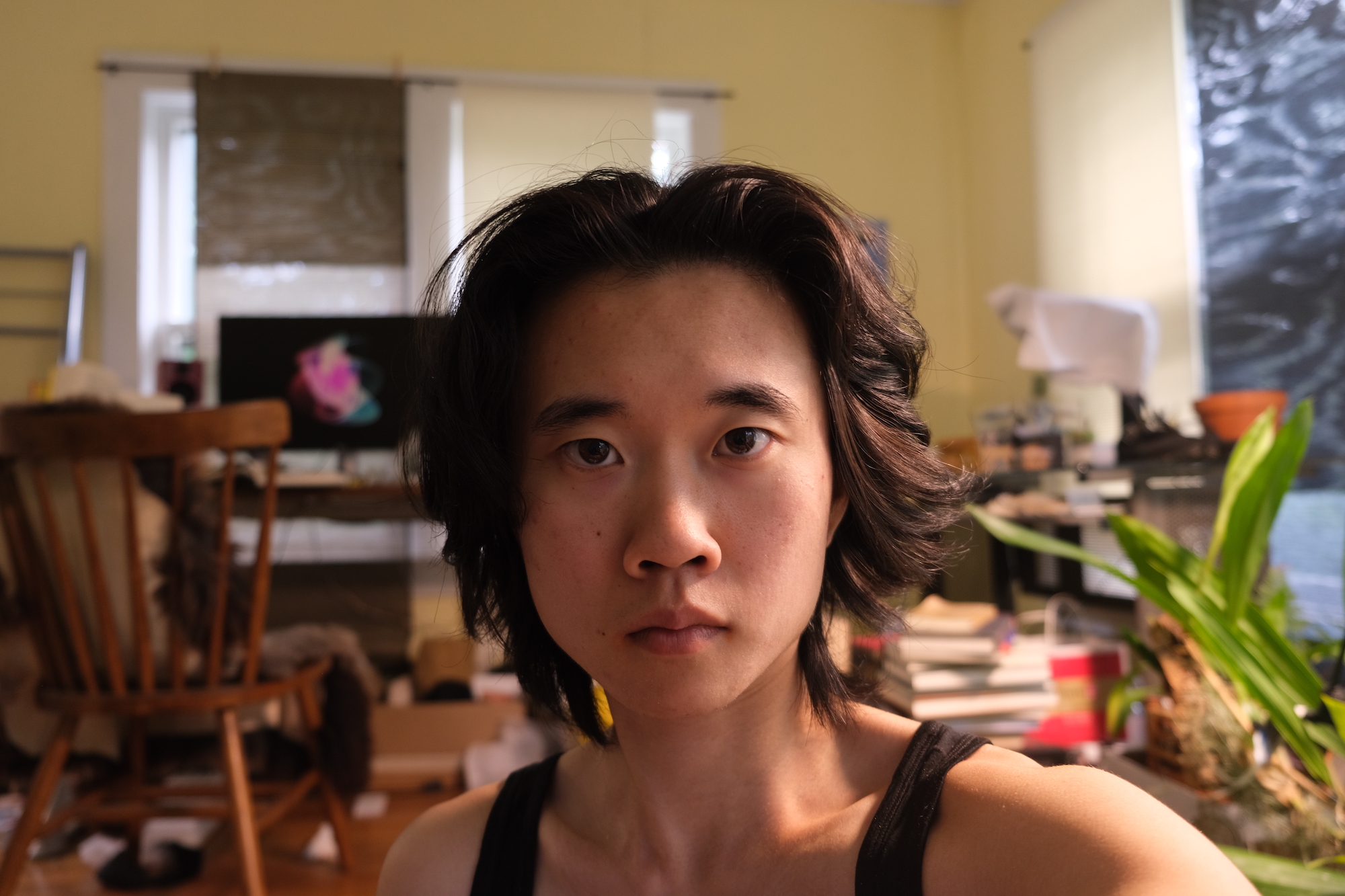
[Sunday, August 14]
Vishal wants to be less embarrassed about wanting to write about sex!
He spent time on a bat scientist leatherman’s archive this summer!
Spent almost two hours on cello, separated into an afternoon and an evening session.
Curious about mesmerism, suggestion, hypnosis, connections with EMDR.
[Thursday, August 18]
I have returned to pessimism—don’t understand how anyone should want to write to me.
The body, Steedman writes bitterly, is what the powerless work on when they have nothing else: a certain skirt and certain foods can populate what counts as imaginable satisfaction in the face of other frustrated social relations." (237)
she disappears from her old life and identity and takes on the project of living as a she-devil, a being of Nietzschean master proportions who uses her wisdom, bodily strength, and will to build a world that suits her. To be a she-devil means not only to live beyond the rules of normativity, but to go beyond sexual difference: “A she-devil is supremely happy: she is inoculated against the pain of memory. At the moment of her transfiguration, from woman to nonwoman, she performs the act herself. She thrusts the long, sharp needle of recollection through the living flesh into the heart, burning it out. The pain is wild and fierce for a time, but presently there’s none” (163)." (248)
For Parker, this reduction of life to a relation between bargaining and fantasy produces conventional women as a community of stuck subjects who live only to return to the intensified situation. (214)
I am suggesting that for Parker these performances of cognitive superiority are not triumphs over these emotions but defenses, failed defenses, ways of managing affect through the mediating pacing of form (tropes internal to the text) and genre (the codes that generate readerly expectations about the shape of the narrative event).
“I knew a woman” is a most efficiently told story of love as the gift that keeps taking. It is a story repeated so often that it has become a phrase, a code, a byword, like that joke in the joke about jokes in prison (the prisoners have only so many jokes and recycle them so much that they just yell out numbers; when one of them yells out a number and receives no laugh, he moans, “I never could tell a joke”). In this feminine economy too, it seems, there are also only so many stories and they are so bad and so pervasive that they are like curses the world has made on women rather than stories that emerge from their lives." (217)
This was the point of continuously returning to “the woman” in the “story of a woman I know,” to see the wiggle room within normativity as the basis for feminine optimism, which engenders conventionality as a protective layer that manifests itself sometimes as rhetorical hardness and sometimes as its opposite, in behaviors and genres of leaky, porous, blurry, grotesque, or lovely softness." (226)
(Lauren Berlant, The Female Complaint.)
So interested in the feminine, so rabidly interested in the feminine that it leaves little room for anything else. Anxious? Pessimistic? Melancholic? Yes, and……. thus spill out the paragraphs, the skeleton of the dissertation. She does it with full knowledge of the fact that activity runs a circuit around a hole—a worse, darker, scarier hole than she’ll ever be able to exhuast. A man interpellated me on the street after my run—told me to join the FLRC—I figured I would, in fact, and find quick, smart girls to run with, and perhaps not expecting to find it, men whom I might want to touch or at least observe. I’d much rather be perceived posthumously as a Great Slut than a Great Mother; though apparently I now want to have five children by five men. Does that make me more of a slut than a mother? What’s the appeal of being a slut? Something about the capacity for repetition?
[Saturday, August 20]
Lighten up, monomononomonomonomaniac
It rained hard that day, and the womb had its quickening, and she came three times.
[Sunday, August 21]
In that dream she encountered a lizard; it was large, skink-like. It was sitting on a branch of an indoor tree. She was walking with John inside a university building on the way to a pool; she pulled her phone out of her backpack to take a picture, very slowly, as if paralyzed. Later, she was collecting her things to put in a bag in order to go swimming. Several hours before, she had been in the Kennedy Center looking for her cello, and saw Zane and Kyle sitting on the red carpeted steps, sitting on large rectangular cushions, one blue, one pink. She thought it was strange that they were coordinated with the colors of the trans flag and began to compose a poem; the words “chaotic enough” were somewhere in it. In the final dream, she was working in retail at a grocery store with a man who looked like Penn Badgley. She was assigned to go out and look for something, and ended up on the floor of her high school biology classroom, having failed. Before she left for this expedition, the man embraced her from behind and she could feel his cock growing. When she woke up she found that her middle vertebrae still were sore, and that she was very tired. The dreams did not seem significant enough to reflect on, but upon remembering the presence of the skink, she decided to write them up. The day passed with a steady rate of absorption. She prepared to teach, thinking about how she would appreciate the randomness of encounter with new students, then thinking that she had no investment in the optimism which surrounds novelty. It was the last day of the summer term. She knew the fall was coming to grip her around the throat, to demand she suffer.
Whatever the effects of turmoil, emotion, or anxiety attending the hysteric's disgust, if the analysis is to bear fruit it is absolutely necessary to make the subject realize that, paradoxically, feeling like filth, or like a rotting corpse, or a pile of blubber, is much more certain, and therefore much more comfortable and practicable, than seeing an ungraspable feminine identity constantly vanishing out from under her. The depressive mode in which the hysteric often presents for analysis must not lead to an error: saying that one is a wreck or a jellyfish is much more reassuring than having to confront the enigmatic hole into which the subject falls when she asks what it means to be a woman," that is, when she asks the question that leads to the lack of a signifier. (André, What does a Woman Want?, p. 126)
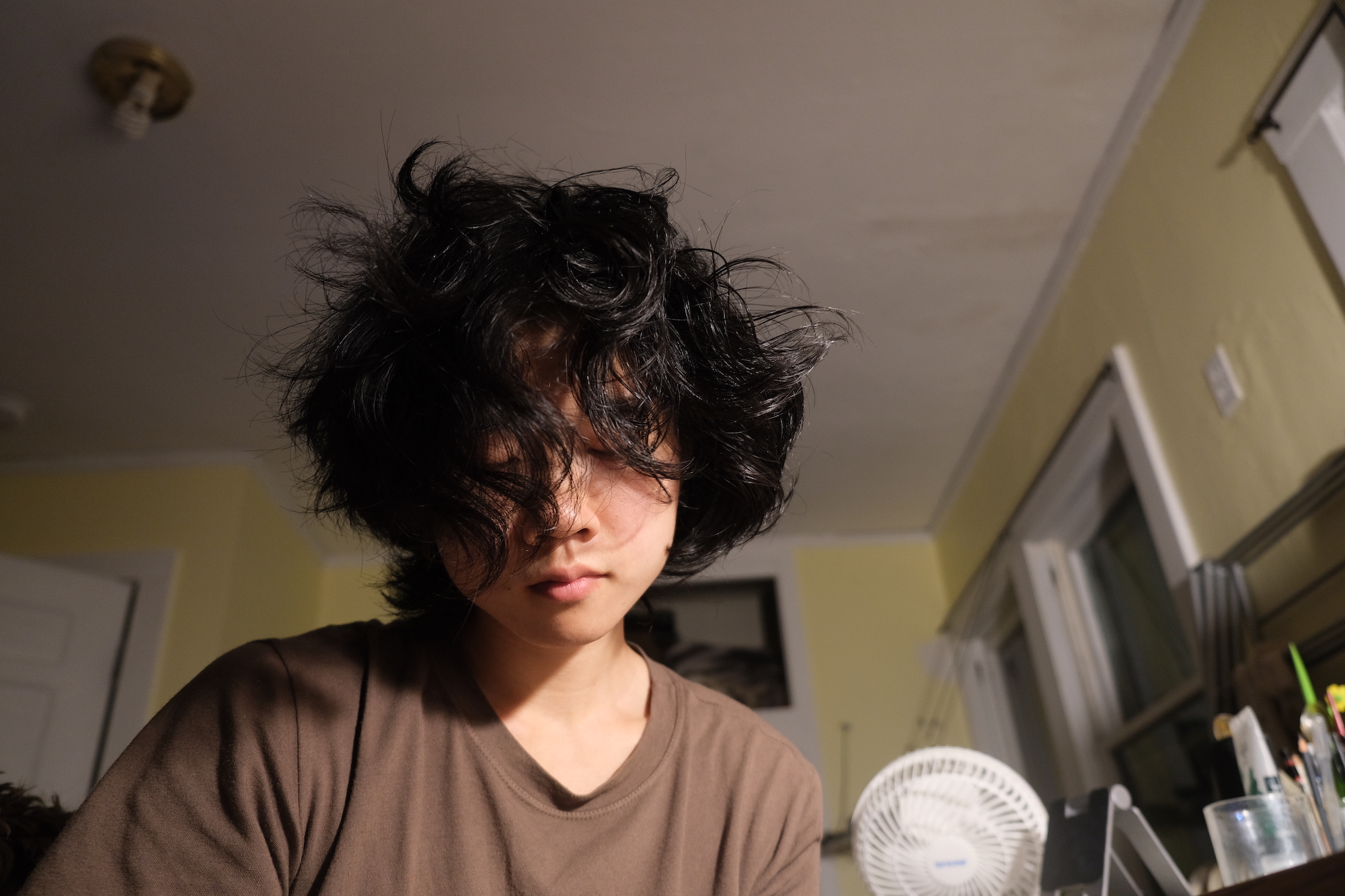
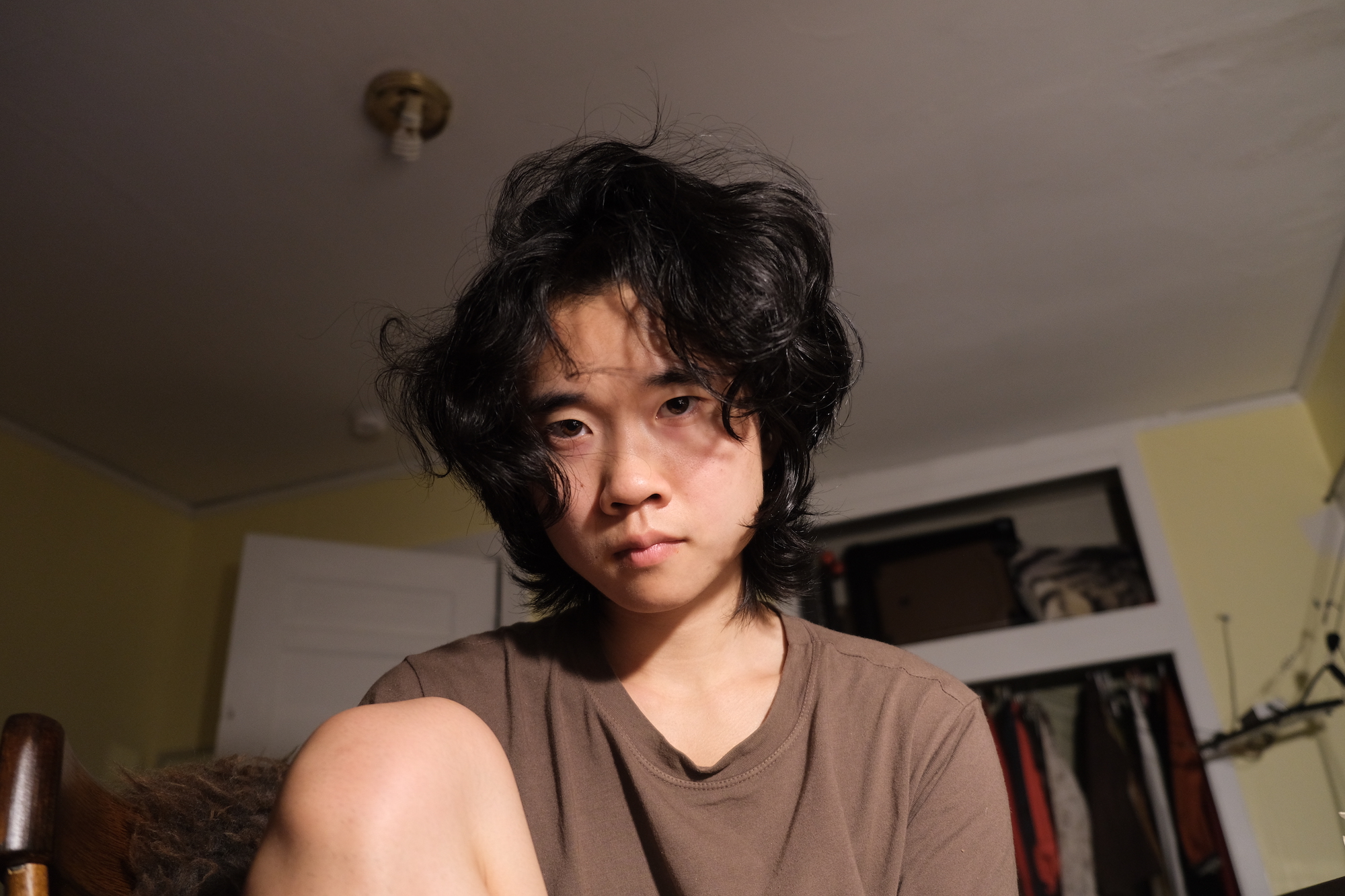
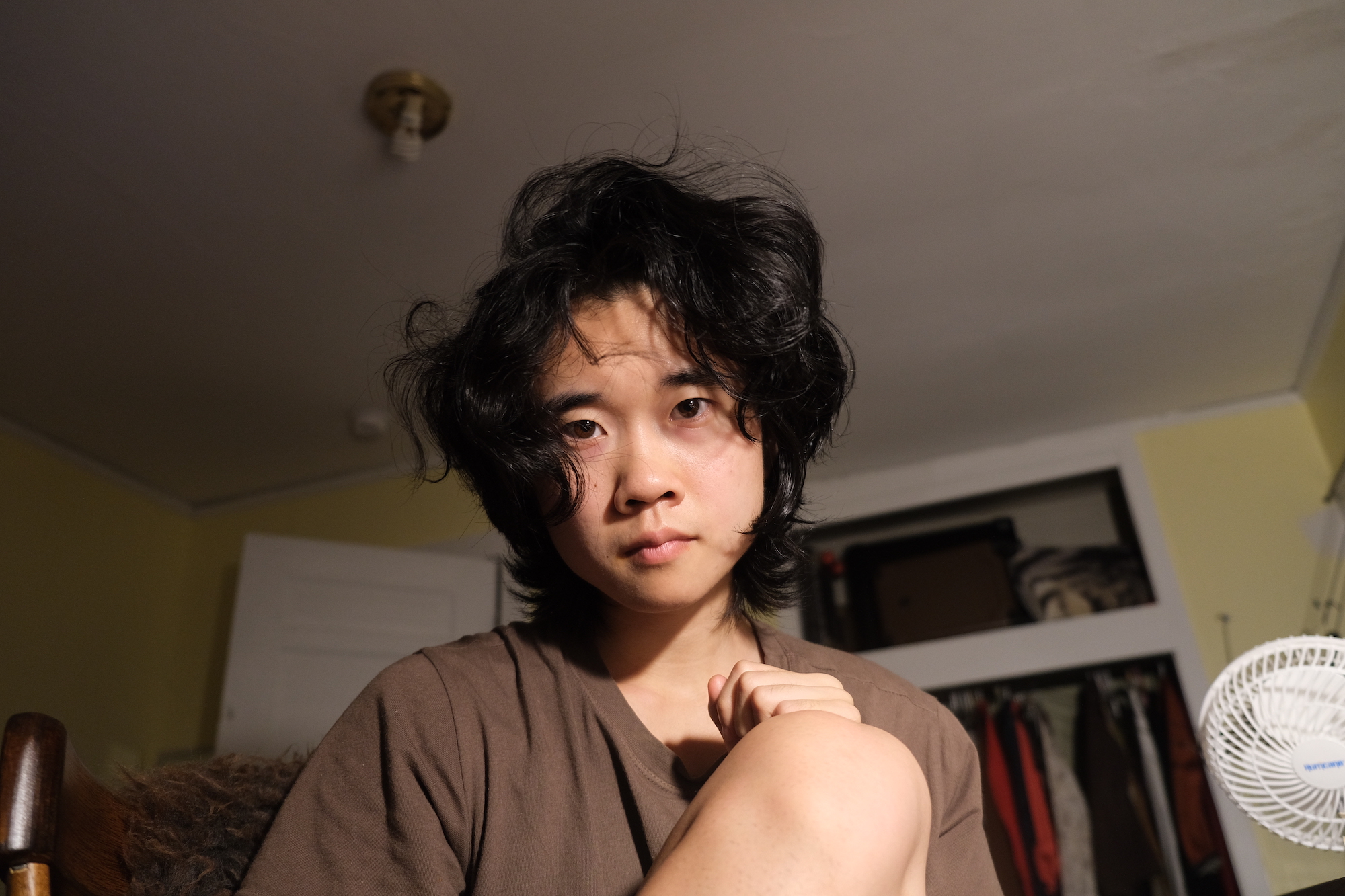
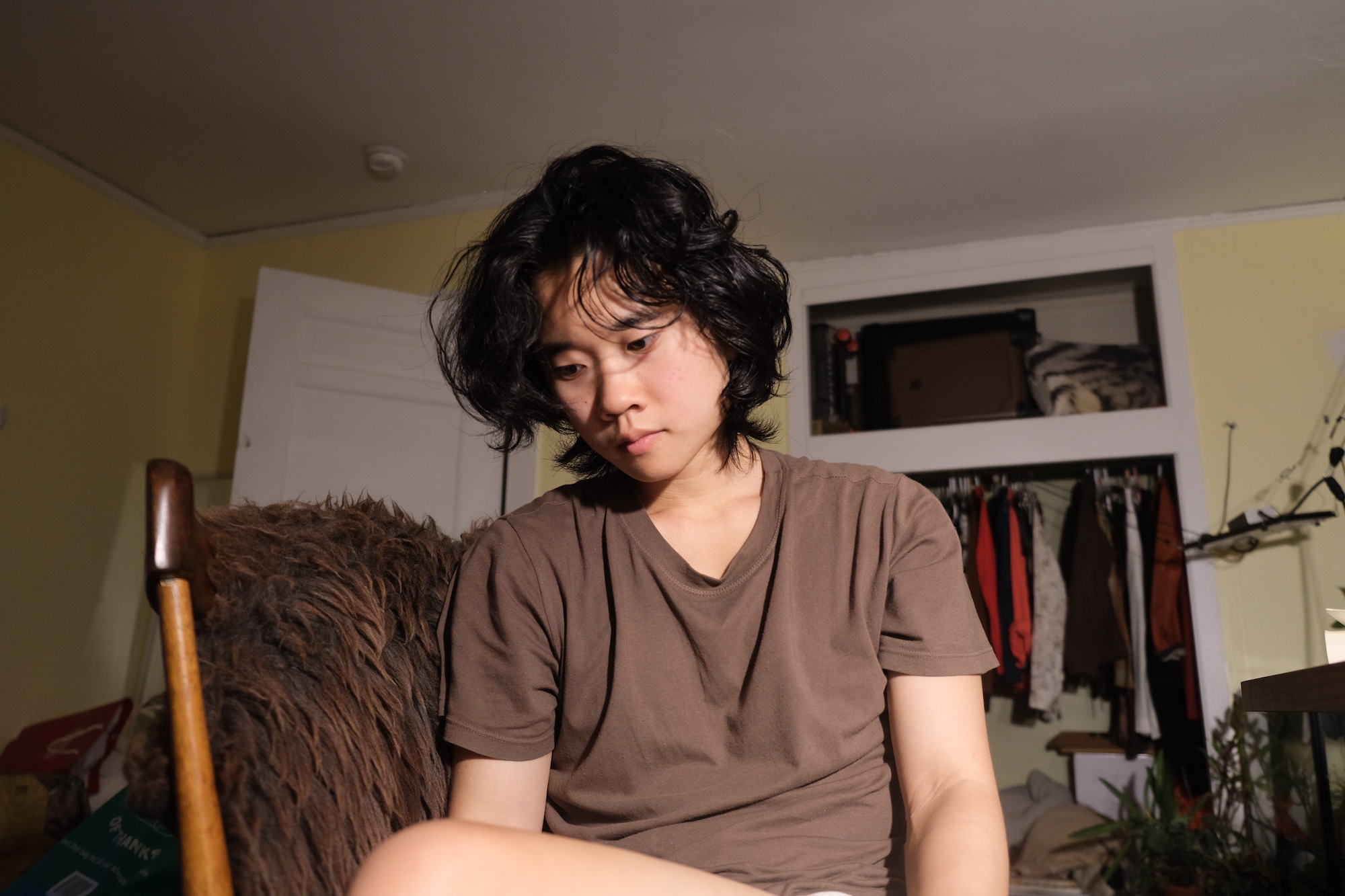
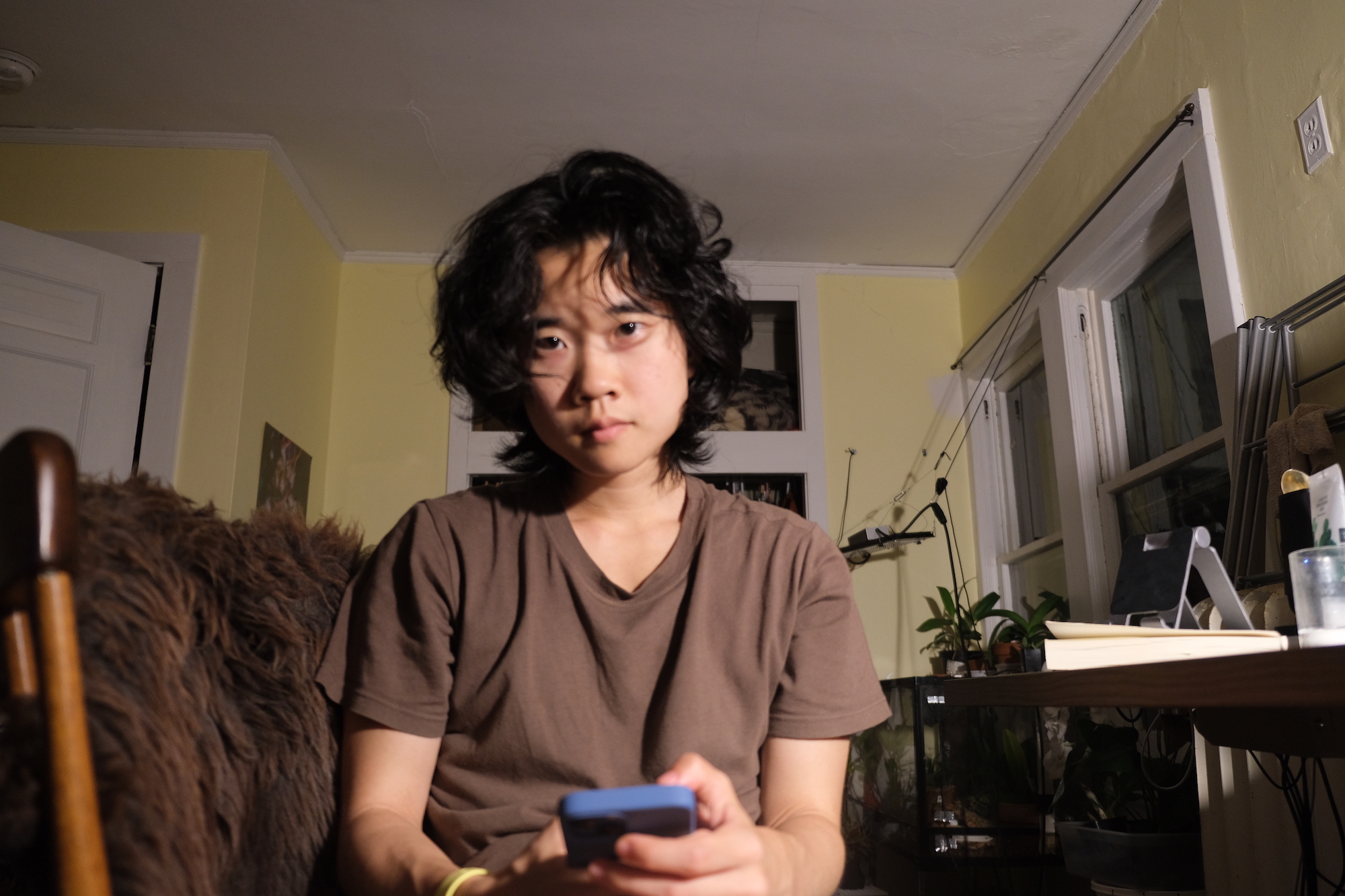
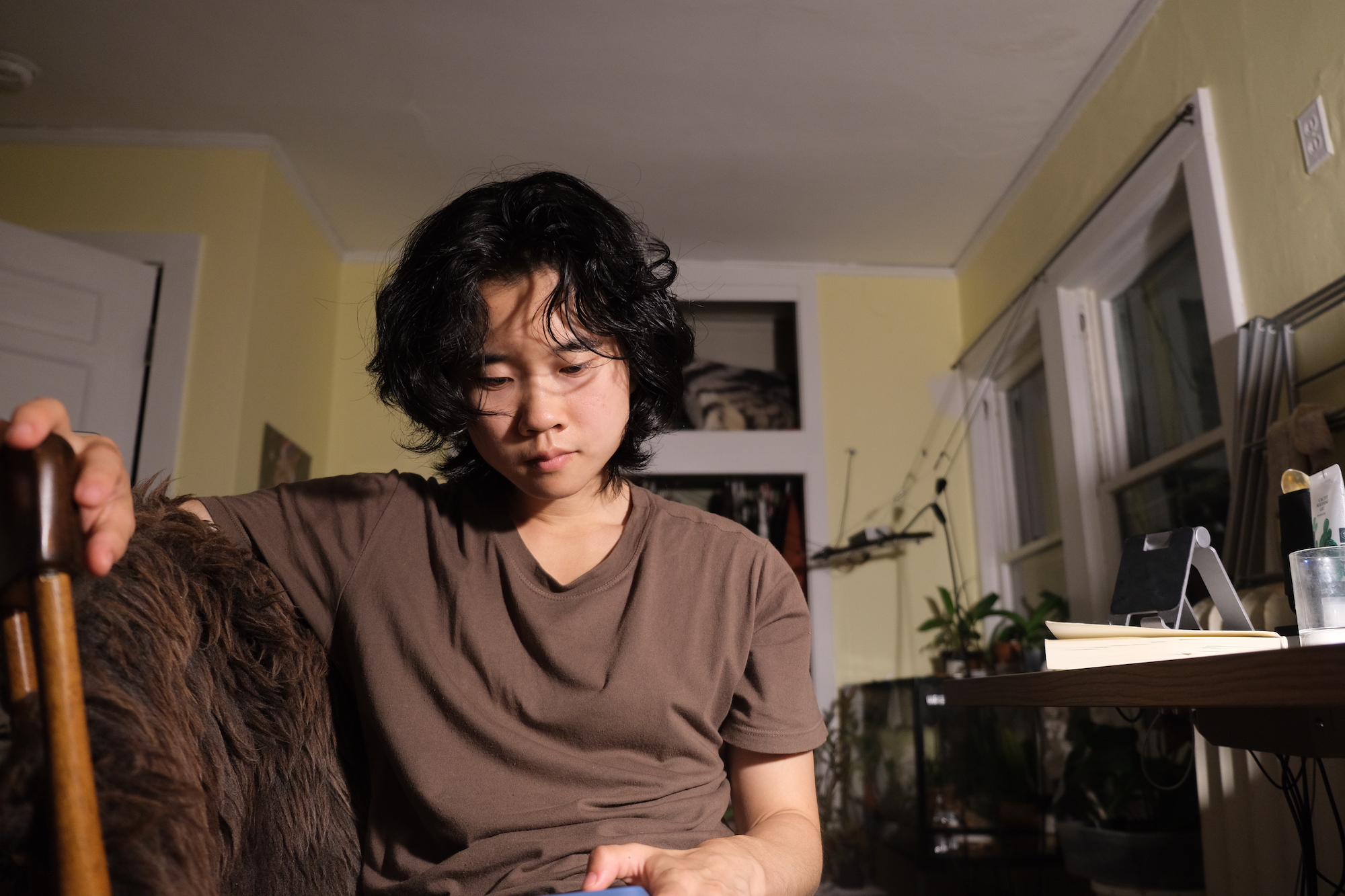
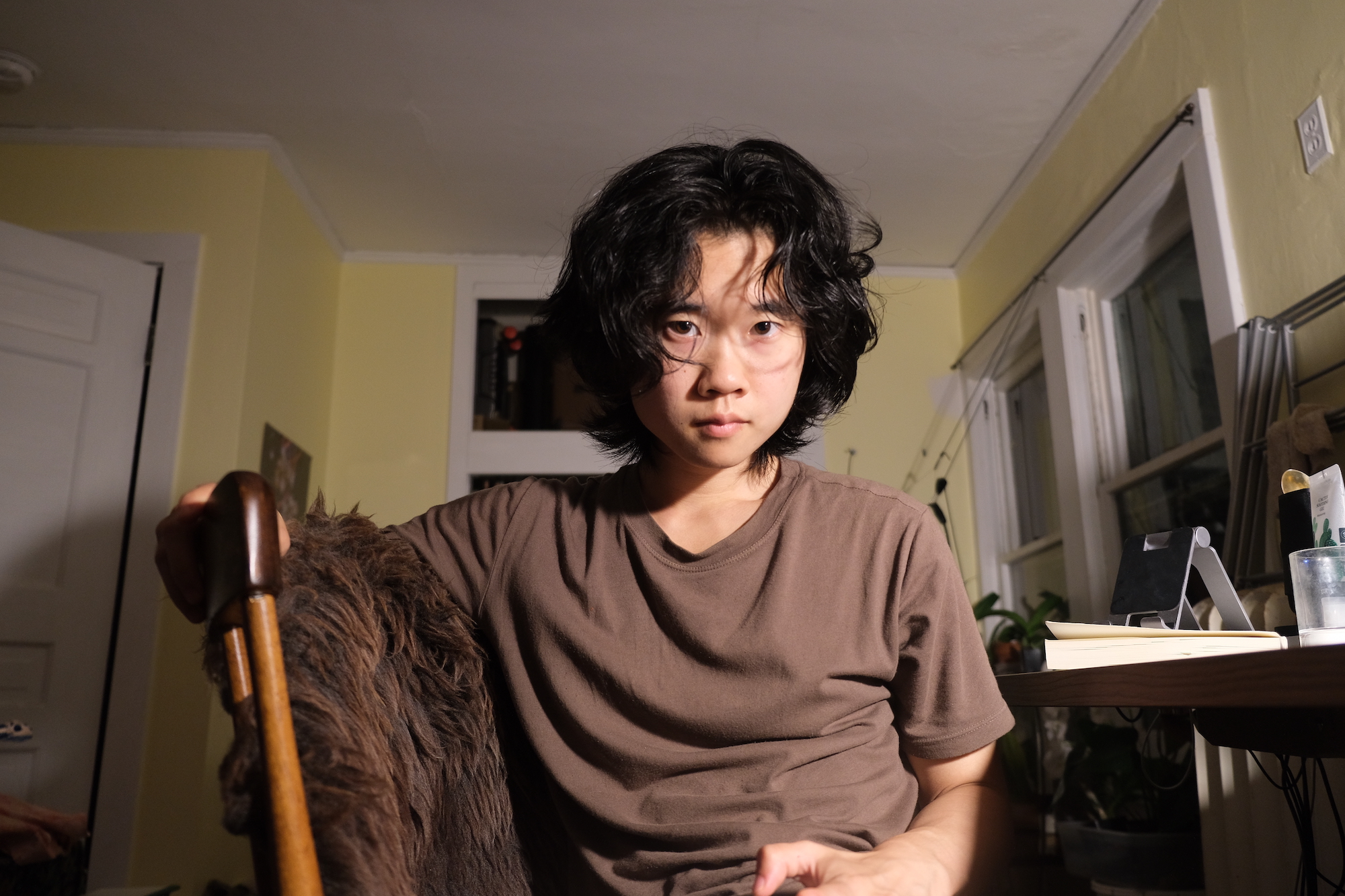
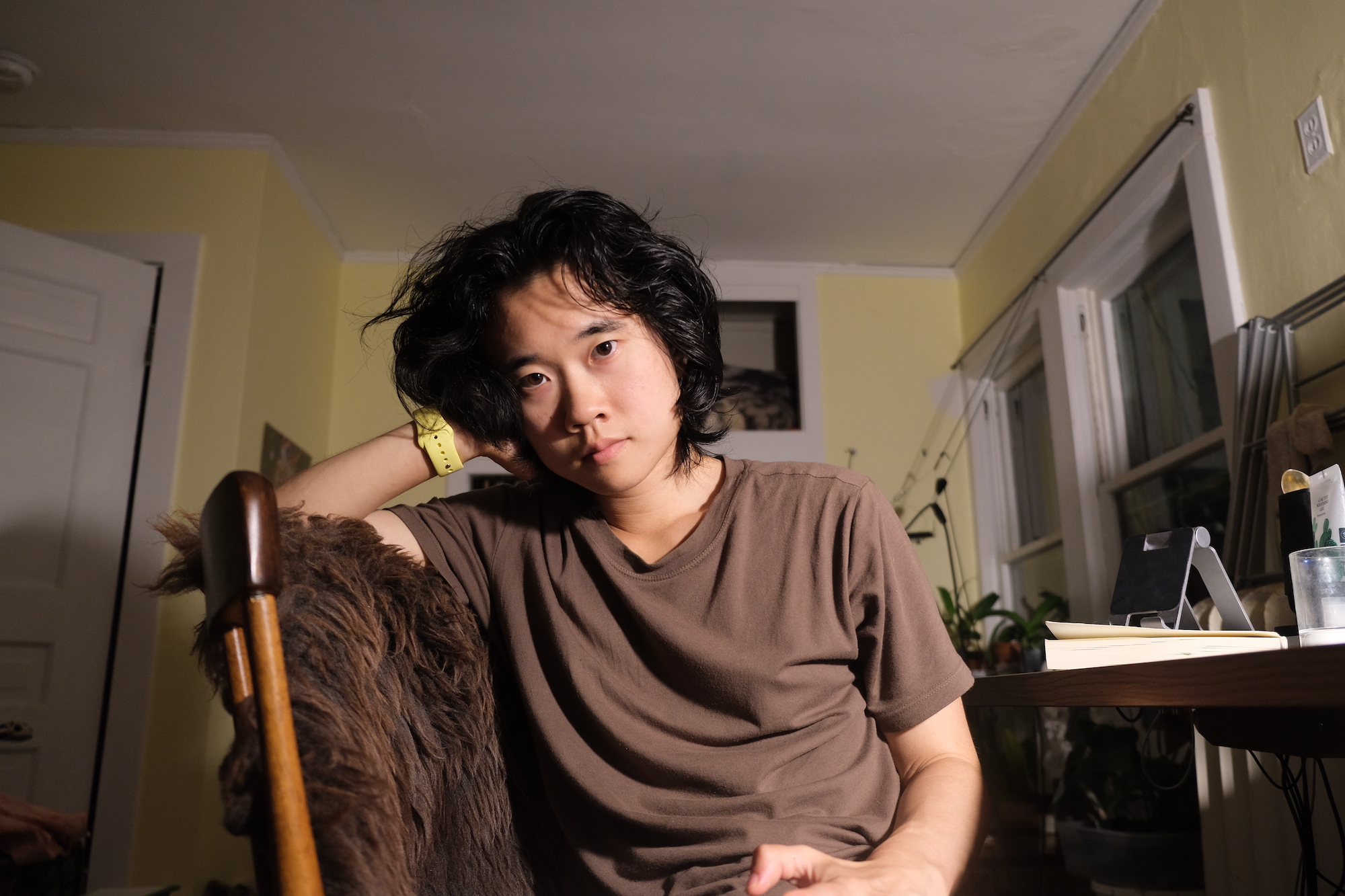
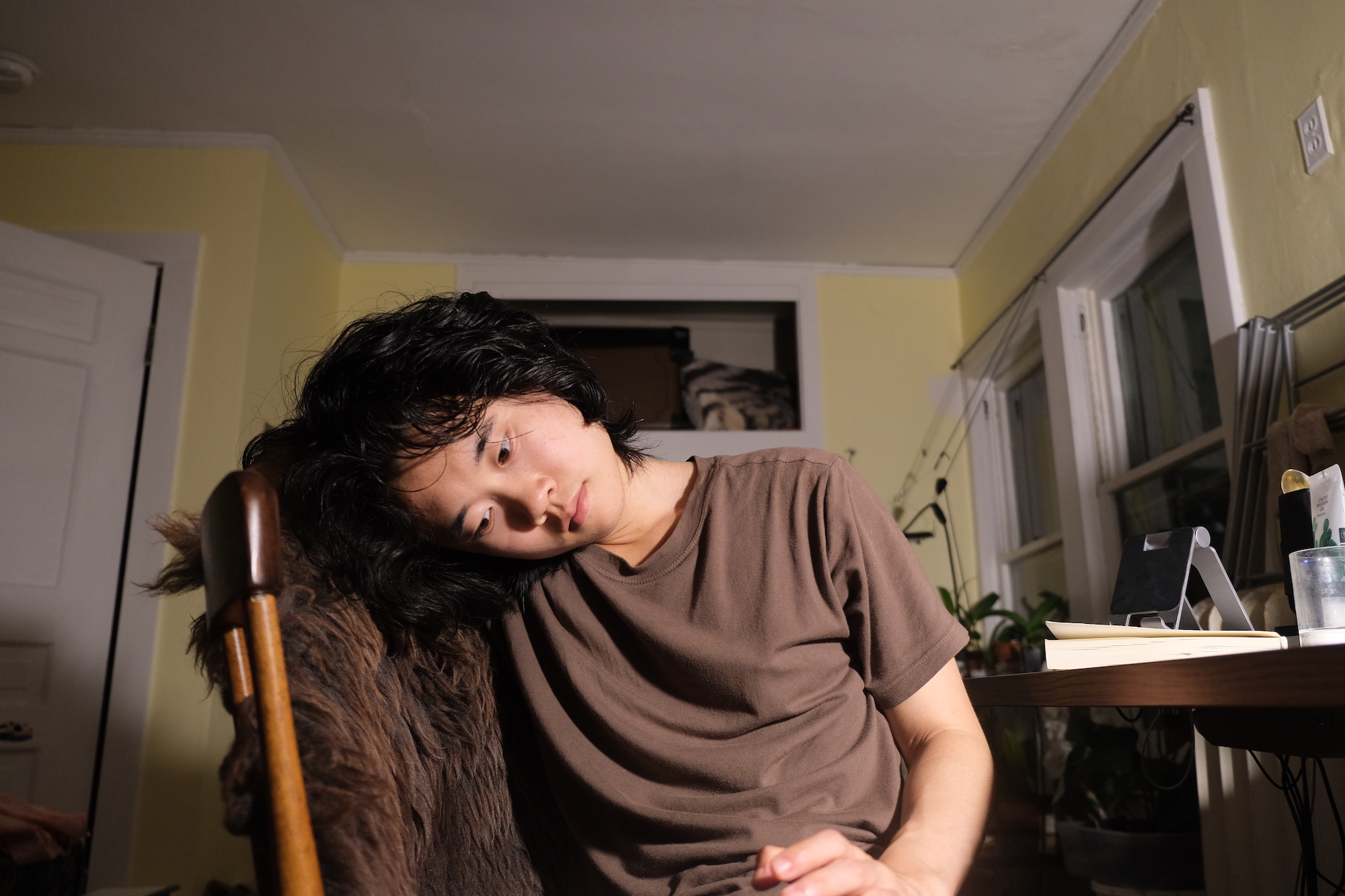
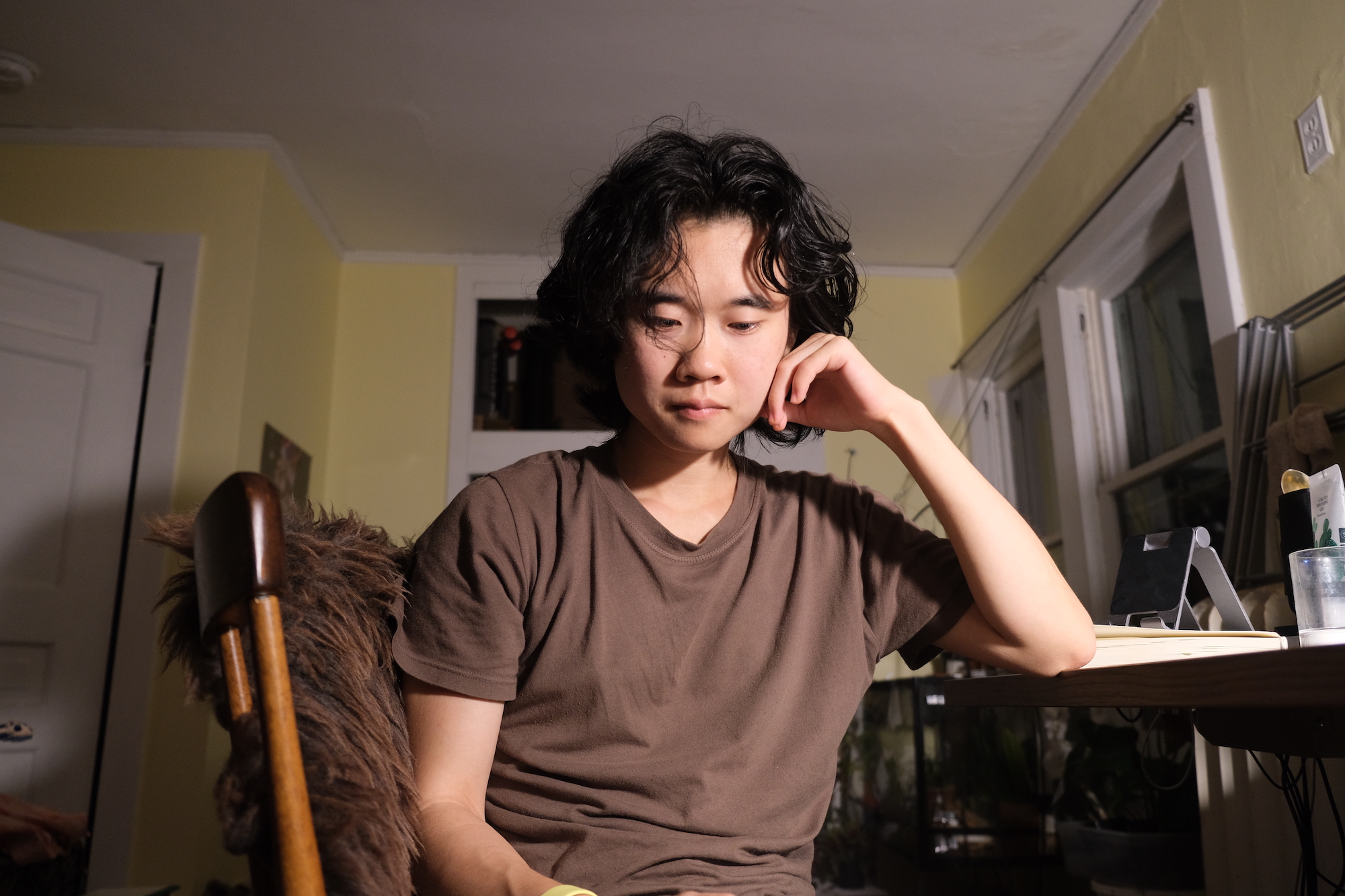
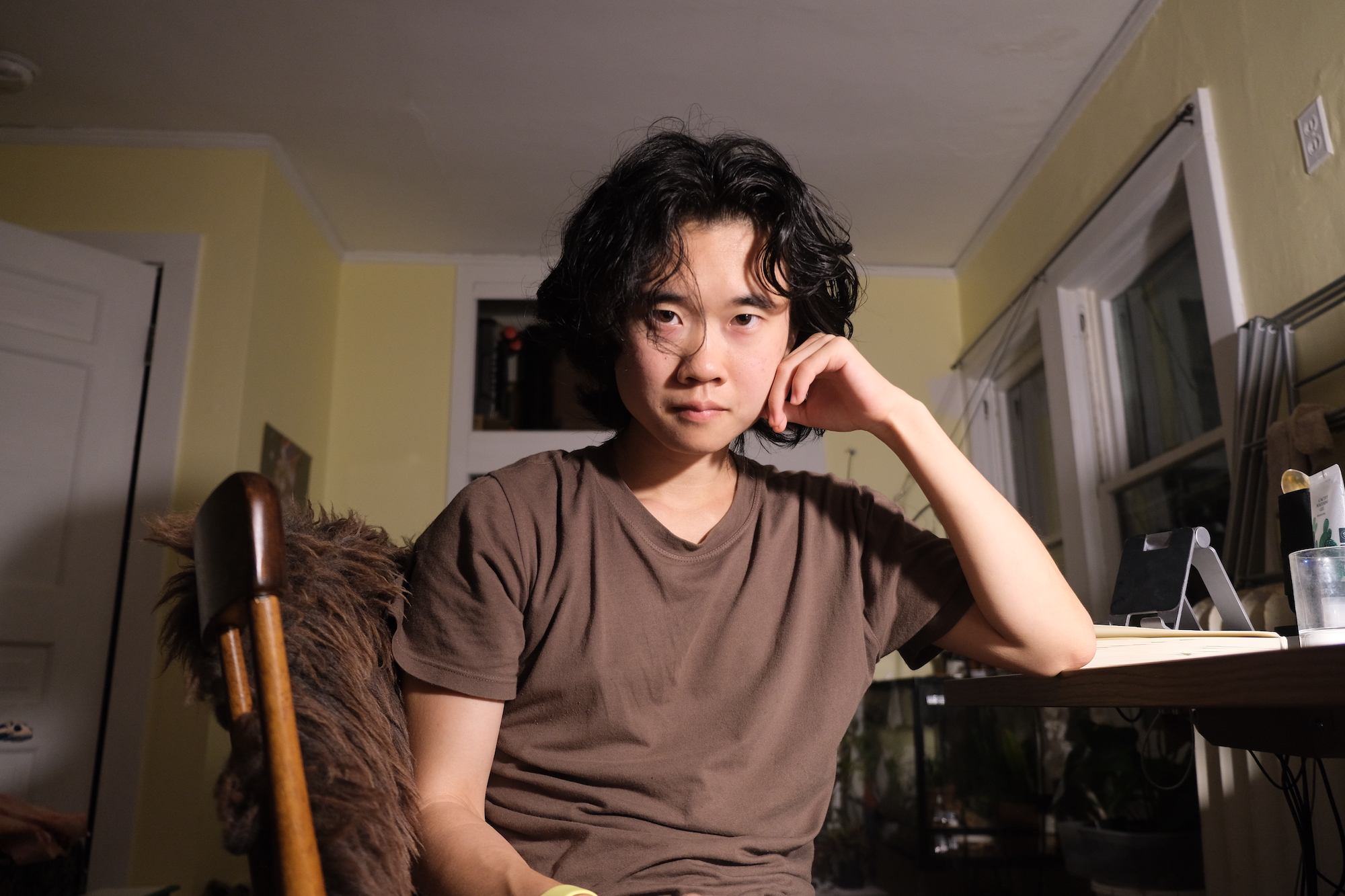
[Monday, August 22]
I went to sleep thinking about my father. If I think hard about it, I realize that I want so badly for him to fuck me that I will do something very bad like write a poem about gnawing his arm off while he’s asleep. This was provoked by Halldor/Xinyu friending me on facebook, which led me to look at my old pictures, and to see one of my dad jumping on the ice of a lake, mid-air. Obviously the picture is mine, a testament to my own skill and beauty, but I like seeing him in pictures, which I can’t look at either, though I can glance at them at least. I cannot imagine him, but I like the notion that his genes are inside of all of my cells. I like his arms. I also like the idea that my mother’s hatred of and attraction towards him is so deeply ingrained in me that it will determine the shape of my desires for the rest of my little life. When H suggested that I was afraid of falling madly in love with my father, I laughed, to acknowledge the truth of the comment, but replied that I knew very well that he didn’t interest me as a real human being, that it was difficult for me to imagine becoming truly occupied with thoughts of him. When I’m around my dad in person I barely notice him. But that’s just another manifestation of me knowing that I can’t bear to look at him. I imagine him going to the grave, as if about to be executed, his last thought before the blade falls being, my daughter has always wanted to fuck me.
The morning before class was dense with something. I encountered the following statement by Richie Hoffman: “I feel like I’m never writing about sex. Usually I feel like I’m writing about intimacy and attention.” How terrible to believe that sex is a pretext for something else! That sex must be domesticated into “catalogs of sensuous details”!
I am somebody who finds very “random” things sexual, in any case—my cunt started to drip as I read the following sentence from Glück’s “The Education of the Poet”: The fundamental experience of the writer is helplessness.
I bumped into Vishal and I asked him if he ever felt that being a person who studies sex poses some barrier to being friends with people; I said that while I liked talking to people about their desires, I nevertheless found it hard to hear most people gossip after a while, for it often became repetitive in a way that felt off-putting, for some reason. I added that I didn’t expect people to engage with me on the unbearable topic of sex all the time, that I liked to share animal videos with my friends, to talk about viral internet phenomena, or about what a person had eaten or noticed during the day, or to see a person’s face darken or lighten upon thinking about some apparently trivial detail. I didn’t actually say all of this, but now I’m thinking about how I like people because of their expressions, their reactions to things, which doesn’t seem to have anything to do with their willingness to talk about something I care about. Vishal said it was alright to be preoccupied with sex as long as I wasn’t a solipsist. He looked at me with some sort of sweet disquiet.
zane rhymes with sane (or insane)—didi seems infantile (comes from heidi, her mom’s condensation and reduplication of an anime she had watched as a child in the 60s), but didi is sex (the insistence on repetition in the face of impossibility), or didi is asexual, immortal, scissiparity. heidi is from adelheid (“of noble birth,” anticipatory of younger sister’s name), so didi is the diminutive of the diminutive, or harbinger of something. “didier” comes from latin desiderius, a didier is a “longed-for child as an expression of the christian’s spiritual longing for God.” Not sure why I’m doing this onomastic exercise.
[Wednesday, August 24]
Woke up at 4:38 from a dream. I was thirsty, probably because of the somewhat intense run last evening. I had invited Zane to Ithaca and he came. I was showing him my very overgrown Coelogyne mayeriana, which had a density of growths coming off of the main “spine” instead of just a simple linear arrangement of pseudobulbs. I showed him where it was appropriate to trim off old growths, pointing out a few blackened ones, as if instructing him on how to take care of my plants while I was away. I was worried that he was already finding this task annoying. I asked him if he wanted to go somewhere, but felt guilty about the prospect of making him walk up hills. I showed him a part of a Korean movie in which a man and a woman lie in a lateral recumbent position on the completely white ground of a parking lot, and the man is moaning in pain; they are disturbed by the entrance of some other person off-screen. I thought that instead of walking for a long time, I could bring Zane to “chill” by the water, and the scene I imagined was a mixture of first dam, which one would have to descend to sit by, and the Cascadilla gorge trail, which one would need to ascend.
I’m drawn to this “spine” of pseudobulbs and the image of the blackened ones which could be trimmed off. My Coelogyne mayeriana is 45 inches long if you don’t account for curvature, and closer to 55 if you do. I am resistant to dividing it.
I’m supposed to go on a date with a “computational sociologist” whose brother is serving a jail sentence for murder; he makes bizarre language errors in his communications thus far. The ideal situation is that this quickly escalates into a sexual encounter of which I can write; I would like him to be straightforward, aggressive, to take satisfaction in talking about his dissertation, to perhaps provoke me into explaining what mine will be.
I forgot to flush the toilet (full of shit) because I was reading about Lacan’s objections to genital desire and oblativity. The whole drama between me and Lacan surrounds the question of whether or not the penis itself has any meaning with respect to desire.
The gift-like character excrement takes on has been well known and situated since the beginning of analytic practice. It is so clearly in the gift register that an object is experienced here that the child, in his occasional excesses, naturally uses it, one might say, as a means of expression. The excremental gift is part and parcel of psychoanalysis’ oldest theme.
I would like, in this regard, to take as far as possible the extermination I am always trying to carry out of the myth of oblativity, by showing you what it is really related to here. The true field of oblativity is the field of the anal dialectic, and once you have perceived it, you will no longer be able to see it in any other way.
I have long been trying, in many different ways, to show you this road map. In particular, I mentioned to you that the very term “oblativity” is an obsessive fantasy. “Everything for the other person,” the obsessive neurotic says, and this is indeed what he does, for being caught up in the perpetual giddiness [vertige] of destroying the other, he can never do enough to ensure that the other continue to exist. Here we see its root.
The anal stage is characterized by the fact that the subject satisfies a need only in order to satisfy the other. He has been taught to defer this need, so that it may be founded or instituted solely as an occasion for satisfying the other as educator. The satisfaction of playing the doting parent [pouponnage], which involves the wiping of tushies, is first and foremost the other’s satisfaction. It is insofar as it is a gift that is demanded of the subject that one can say that oblativity is linked to the sphere of anal-stage relations. (204)
[Thursday, August 25]
I don’t really know what I’m doing with George Meredith.
Encounter with A is not deserving of narrative mutilation. ✨
OK, that is so cringe 🙄 Everyone’s deserving of narrative mutilation 💕
[Friday, August 26]
I’m pleased with my recovery. I got 7.5 hours of sleep.
I am as lost as ever, but have Meredith’s bubbles.
I could die well knowing I laughed well.
[Saturday, August 27]
I woke up at 3:30 AM. I was telling John that I was going to visit him and received a long string of texts, something about how he was too scared to leave his house and meet me outside, so I would have to traverse a long and curly driveway. He said something about having spend time with “A,” which made me jealous—was this my “A”? I was caught up in a glass building in the middle of the city full of geisha who were exiting ceremonially through revolving doors. It was hard to figure out a way of exiting since they were all moving so slowly and deliberately through the doors. John’s parents were A’s, John sent me several pictures of himself, they were nice selfies taken outdoors with dappled sun and tree foliage in the back. He asked me various little questions.
I re-watched (almost all of) Ai no korīda, so that’s where the geishas came from, but I never understand any of the buildings in my dreams. I don’t understand why I woke up at 3:30 either—this seems absurdly early. I had a hard time sleeping because I was too aroused, orgasmed around 12:30, would expect that lead into a deep slumber. Perhaps my body thought it was simply taking a nap. I was a bit restless when I awoke, and felt it was worth expending some effort into recording as much as I could of the dream. When I awoke it must have been around 6; it was still quite dark out, forbidding, and I was tired.
I think I’m actually anxious about getting ghosted. I’m also worried that John knows that it’s going to be more stressful or intense to be around me from now on because I’m a girl.
I just got a text from John about how he’s visiting his brother’s studio with his family.
I haven’t regained my ability to cry, but this is making me want to cry.
[Sunday, August 28]
Since I’m telling Michelle about the mom dreams, I need to add the one from August 16:
I was walking with John, and then later, separately, my mom led me to a Target full of plants; beside it was an old abandoned farm house, white, like the houses in Ithaca near Buttermilk Falls. When we entered the building it was from the “back,” but then I walked through its aisles in the opposite direction (as if the entire “stage” had been rotated 180 degrees). It was darker at first, and then light, as if I was walking through a greenhouse.
I’ve dreamt on 16 days of the month thus far:
2, 3, 4, 6, 7, 8, 9, 11, 12, 13, 15, 17, 18, 21, 24, 27.
[Monday, August 29]
John showed me his different houses, each had an extension, like a porch with a brightly colored couch inside. The first was light blue, the second was teal, the third was yellow.
I had trouble recalling this dream when I woke up. I just had a strong feeling that something had happened. I think there was more of a “plot” to it—some other presence or goal towards which I was oriented, which wasn’t John or what he was showing me.
It’s 7:45 AM and I’ve been up for about an hour, feeling not particularly well-rested, avoiding but slowly dipping in to my duties as a teacher. I’m glad I picked up these abandoned CDs on the curb: Philip Glass violin concerto (Adele Anthony, Ulster Orchestra), Pēteris Vasks, Plainscapes (Latvian Radio Choir); Vasks, Distant Light (Kremerata Baltica, Gidon Kremer). I like the idea of this site becoming like it was last year: draftier, more profuse, and without readers. It can’t go back to that, I guess.
Chapter 21 of The Egoist (“Clara’s Meditations”) is apt for this moment.
After a fall of tears, upon looking at the scraps, she dressed herself, and sat by the window and watched the blackbird on the lawn as he hopped from shafts of dewy sunlight to the long-stretched dewy tree-shadows, considering in her mind that dark dews are more meaningful than bright, the beauty of the dews of woods more sweet than meadow-dews. It signified only that she was quieter. She had gone through her crisis in the anticipation of it. That is how quick natures will often be cold and hard, or not much moved, when the positive crisis arrives, and why it is that they are prepared for astonishing leaps over the gradations which should render their conduct comprehensible to us, if not excuseable. She watched the blackbird throw up his head stiffly, and peck to right and left, dangling the worm on each side his orange beak. Specklebreasted thrushes were at work, and a wagtail that ran as with Clara's own rapid little steps. Thrush and blackbird flew to the nest. They had wings. The lovely morning breathed of sweet earth into her open window, and made it painful, in the dense twitter, chirp, cheep, and song of the air, to resist the innocent intoxication. O to love! was not said by her, but if she had sung, as her nature prompted, it would have been. Her war with Willoughby sprang of a desire to love repelled by distaste. Her cry for freedom was a cry to be free to love: she discovered it, half shuddering: to love, oh! no—no shape of man, nor impalpable nature either: but to love unselfishness, and helpfulness, and planted strength in something. Then, loving and being loved a little, what strength would be hers! She could utter all the words needed to Willoughby and to her father, locked in her love: walking in this world, living in that.
George Meredith(’s narrator) seems incredibly tender in his lucubrations on femininity:
Maidens are commonly reduced to read the masters of their destinies by their instincts; and when these have been edged by over-activity they must hoodwink their maidenliness to suffer themselves to read; and then they must dupe their minds, else men would soon see they were gifted to discern. Total ignorance being their pledge of purity to men, they have to expunge the writing of their perceptives on the tablets of the brain: they have to know not when they do know. The instinct of seeking to know, crossed by the task of blotting knowledge out, creates that conflict of the natural with the artificial creature to which their ultimately revealed double-face, complained of by ever-dissatisfied men, is owing. Wonder in no degree that they indulge a craving to be fools, or that many of them act the character. Jeer at them as little for not showing growth. You have reared them to this pitch, and at this pitch they have partly civilized you. Supposing you to want it done wholly, you must yield just as many points in your requisitions as are needed to let the wits of young women reap their due harvest and be of good use to their souls. You will then have a fair battle, a braver, with better results.
These combatants exchanged shots, but remained standing; the encounter was undecided. Whatever the result, no person so seductive as Clara Middleton had he ever met. Her cry of loathing, "Marriage!" coming from a girl, rang faintly clear of an ancient virginal aspiration of the sex to escape from their coil, and bespoke a pure, cold, savage pride that transplanted his thirst for her to higher fields.
[Tuesday, August 30]
If you laugh all round him, tumble him, roll him about, deal him a smack, and drop a tear on him, own his likeness to you and yours to your neighbour, spare him as little as you shun, pity him as much as you expose, it is a spirit of Humour that is moving you.
George Meredith, “An Essay on Comedy”
My dream was so difficult to understand that I have trouble wanting to write about it. I was trying to get to an airport at night, and traversed various stores once I got near it, looking for some kind of edible gift. My mom and sister were around. I saw Susannah walking through the park. There was a nightclub at the bottom of a multi-storied building. Some urgency was involved with the need to catch the flight. I think I was in California.
I ran around Stewart Park, the flat four-mile loop, and saw the complete arc of a rainbow across the sky. There was a yellow light cutting through the mist by the falls. I saw a night heron fly past me, with its beautiful dark blue crest. I heard the weird sound of a duck. The evening clouds were complex and beautiful in their coloration. I spent more time on the ground today, tired out, taking naps, a bit lonely, concerned by or confused about changes in analytic experience; unsure about my attachment to my readings, etc.
I like how Meredith paints the “Comic Spirit.” I’m more suspicious of Banfield’s interest in the neutral than I expected to be. I don’t think Kaja Silverman’s arguments on the value of analogy are any good, but her basic notions suggest a lot to me. I don’t know what to make of Benjamin’s “weak messianism.” It was helpful to discover Lacan’s differentiation between feminine erotomania and masculine fetishism. I have a hunch that I need to reread the Mirror Stage essay. I had to take a break from The Egoist but I’m excited to return. This paragraph is my attempt to remember something about my work for the day.
[Wednesday, August 31]
Today I dreamt that I received a piano lesson, that I skipped middle school, and that my mom got mad when I wouldn’t share my dosa with her (it was purple). I was confused about the status of middle school: why do I need to go to middle school if I’ve already graduated from college? My dad told me that I probably didn’t need to go. I think this dream happened in our former house in Chino Hills. Who gave me the piano lesson?
This seems to relate to my anxiety about “coming home,” of having made a kind of full circle which implies “revolution” and therefore discontinuity. I had a string of dreams about my middle school, of being in it, shortly after Zane ghosted me, so it seems like an obvious sign of “recognition,” of the sort that signals the end of a traumatic neurosis.
I was quite confused when I woke up: how would it be possible for someone who had gone to college to need to take classes from middle school? I even looked up the following on my phone: is it possible to skip middle school? I felt astounded by the strength of this dream, really, however simple it might’ve been on the surface.
And I didn’t even tell my analyst about it!
2, 3, 4, 6, 7, 8, 9, 11, 12, 13, 15, 17, 18, 21, 24, 27, 29, 30, 31